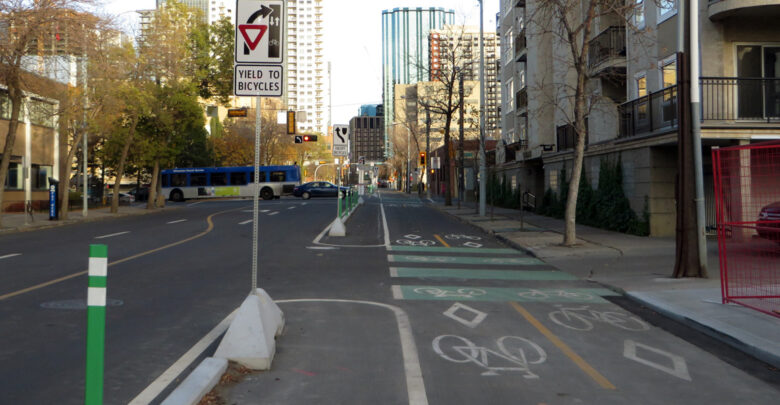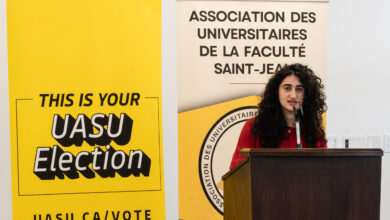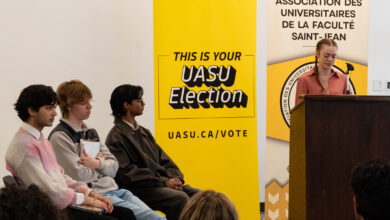 Sandra Fahl
Sandra FahlThe 132 Avenue Renewal Project, focused on creating safer streets, improving infrastructure, and implementing bike lanes is a major city project that started in 2023. It will improve the city by reconfiguring the area to allow for more efficient traffic. The city proposed multiple bike lanes, specifically between 66th and 97th street. However, the project has received major pushback from the provincial Minister of Transportation and Economic Corridors, Devin Dreeshen.
Dreeshen’s argument is that bike lanes will “reduce road capacity when we’re trying to build a road network that meets the growing demand all across the province.” He raises points that bike lanes will sacrifice road functionality. Moreover, he argues that using tax dollars for this project does not make sense.
What I want to know is who asked? The 132 Avenue Renewal Project is a municipal initiative and shouldn’t be altered because a provincial minister disagrees. Dreeshen’s input as a provincial advocate should not have influence in city matters. His comments are going beyond advisory input, he is overstepping municipal boundaries.
Ontario is going through a similar situation, where Premier Doug Ford passed legislation to remove bike lanes in Toronto. The issue received severe backlash in the city. Regardless of some cyclists’ attempts to pause the removal in court, the province will likely going ahead with removing bike lanes. Yet another case of a provincial leader wading into municipal territory. The battle over bike lanes in Ontario could set a precedent for provincial influence over municipal matters in Alberta.
Provincial interference could cause a delay in the project, and could alter its scope. Furthermore, allowing provincial ministers to interfere could undermine future local planning. Other cities may also feel pressure to avoid city projects due to what is happening in Edmonton and Toronto, fearing interference could prevent Canada from transit expansions and climate friendly projects.
Urban projects should not be side-lined by a provincial government that does not have city-based concerns in mind. Residents elect city councils to make decisions on behalf of the community. When the provincial government interferes it erodes trust in our democratic representation and local government.
Adding bike lanes is a valuable project that the city is actively trying to promote, and having the provincial government delay it shows just how out of touch it is with municipal needs. Bike lanes will decrease traffic congestion by promoting cycling, increase safety for bike users, and promote sustainable practices within the city. It could reduce emissions in the city by allowing Edmonton to be less car dependent, and more accessible.
Continued fighting between the city and province will lead to a strained relationship that could cause political gridlock, less collaborative initiatives, and a lack of policy alignment. The project is a step towards making the city more bike friendly. The attempt to undermine a city operation speaks to a broader disregard for municipal autonomy.




